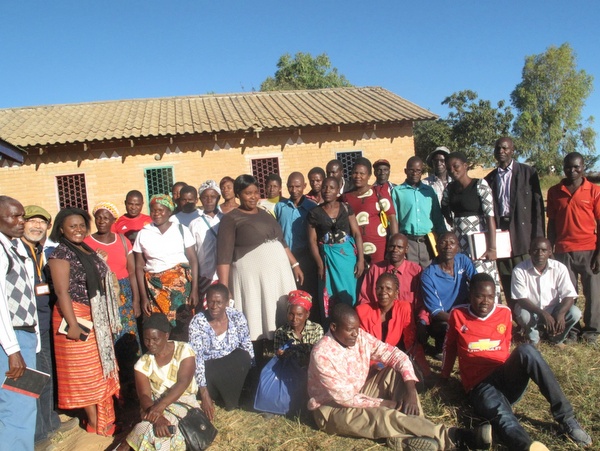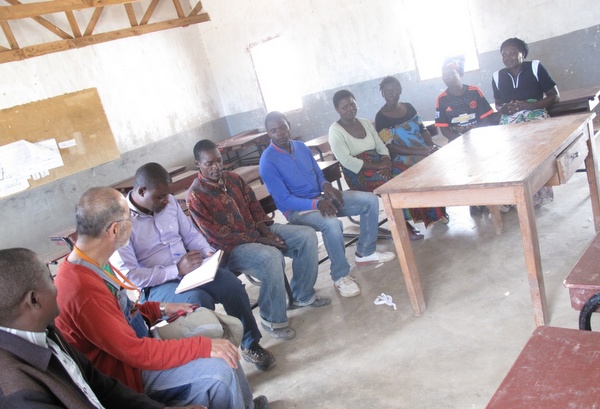The School Health & Nutrition Teachers Committee
It’s not about ideas. It’s about making ideas happen.
With your support Seibo rolled out school feeding across all primary schools in the Kaphuta Zone, Mzimba. In response the community formed a SHN (School Health & Nutrition) Committee.The purpose of the committee is to involve stakeholders in overseeing the feeding and to make recommendations to the District Education Manager when any issues arise.
The committee is comprised of representatives from the school feeding committees, village heads, mother’s groups. Parent-Teacher Associations, teachers and Seibo staff. Together we will discuss the impact of school feeding on students, the schools & the wider community. We will share challenges & make adjustments when needed to ensure the feeding programme reaches its full potential. As Martin Luther King, Jr said, “Life’s most persistent and urgent question is, what are you doing for others?”

Decide. Commit. Succeed
A Look at the Joys!
Thanks to the feeding programme you support:
-Absenteeism has Reduced & Attendance has Increased
It was noted that students who had previously dropped out are now attending school.
-Student Performance has Improved
Regular daily school attendance means children are spending longer time in school and more time on study. Ms. Faith, a teacher at Kanyerere noted that the short-term alleviation of hunger in the students increases the attention span so students are better able to engage in their lessons.
-The Health Status of Students has Improved
Families facing poverty have little choice in the types of food they eat. This leads to children receiving nutritionally inadequate meals that are deficient in vital micronutrients. At Mzimba LEA primary two or three children would faint but with the coming of the school feeding this is no longer the case.
-Increase in Enrolments
On a normal day the Standard 6 class at Cham’ngulube Primary would have about 25 girls and 1 boy present for lessons. The class teacher, Mr. Moses Phiri, says that since school feeding 7 boys that had dropped out have returned. There were many similar stories.
-Improved Behaviour
Incidents of hunger caused some students, in particular those who lived near towns, to leave class and beg in town. In addition some students plundered food from fields. The introduction of a school meal has put a stop to this.
– Less cases of Illness
– Punctuality has improved. This is partly due to the directive from the Ministry of Education Science & Technology that school meals should be served to students before classes in so doing encouraging students to be at school on time.
We don’t grow when things are easy
We grow when we face challenges
A Look at the Challenges!
-Poor Volunteer Attendance & Time Management
In some schools the volunteer-cooks have demanded compensation to turn up. This has led to a shortage of helping hands and has the knock-on effect of delaying the school meal being served.
Earlier in 2017 the Malawian MoE (Ministry of Education) gave a directive that all school feeding should be complete by 7:30 am so as not to interrupt learning. At primary schools in the Kaphuta zone the earliest children eat is at 10 or 11 am. Some schools have adapted better but are reliant on volunteer-cooks turning up on time.However in some extreme cases, such as that of Mzimba LEA, cooking started as late as 1pm and children from the lower classes waited around after school for their meal.
-Poor Storage Management
Storage rooms for the food are not properly cleaned. In addition spilled porridge was noted crusted on the outer layer of the stoves. These issues need to be addressed to avoid serious health and safety problems.
-Incomplete Kitchen Buildings
Some schools such as Chabele & Mzimba LEA have not yet complete their kitchen shelters. This results in volunteers having to move the stoves out of the storage room daily causing unnecessary tear & wear. In the case of Chabele their kitchen’s roof was ripped off by powerful winds weeks before our visit in May 2017 so these can be said to be extenuating circumstances.
Summary
Malawi faces many challenges from malnourished children, over-crowded classrooms to uninspired staff but it is the members at the grass-roots who can help build a better future for Malawi. The existence and persistence despite all of the membership of the School Health & Nutrition Committee is a case in point.
It isn’t what we say or think that defines us, it’s what we do.



